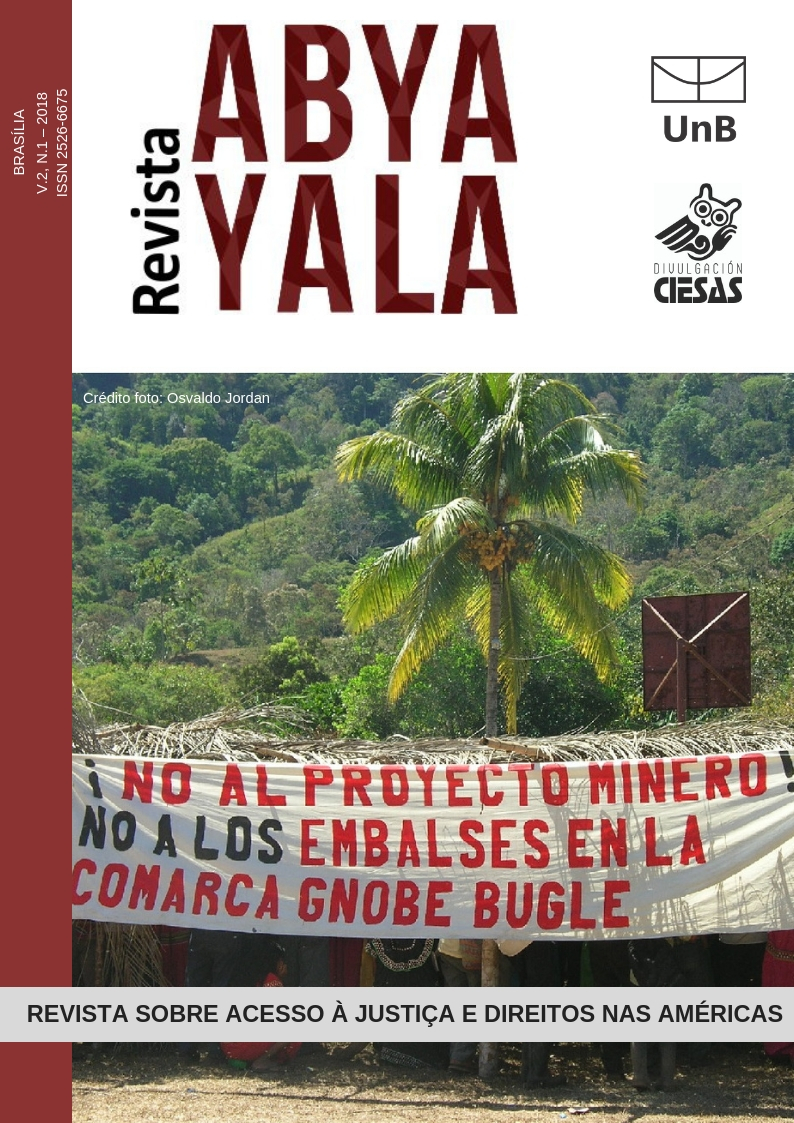The role of non state actors in ensuring Indigenous right to education in na era of neoliberalism: an experiential account from India
DOI:
https://doi.org/10.26512/abyayala.v2i1.10698Keywords:
neoliberalism, intervention, privatization, education, human rightAbstract
Neo liberalism under globalisation makes an all-around attack against state intervention and promotes privatisation. Contrary to it, rising consciousness for inclusion and protection of human rights demands ensuring opportunities to all by increasing access, equality and quality. Education is a basic human right. But inclusive education in India is still a myth. Odisha , a constituent state of Indian federalism and housing 62 tribes has witnessed its limitations in universalising education at a micro level, particularly in the interior physically delinked tribal areas. Under such a situation, the non state actors have come forward to substitute and to supplement the state action. The present paper by adopting an exploratory design and resorting to qualitative method has tried to document the empirical experiences gained from the field on the effective innovations launched by a CSO. The objective of the paper is to indicate the efficacy of non state actors through CSO induced innovations experimented in the sample schools under empirical study, its adaptation by the local milieu and impact on the indigenous right to education. The paper concludes that the non state actors have come up in a great way to fill up the vacuum created by the withdrawal of state and are going to play a significant role in the governance of the flagship programmes and giving a fillip to the constitutional mandates.
References
Bhamra, Anshul, Nagrath, Kriti , Niazi, Zeenat(2015) Role of Non-State Actors in Monitoring and Review for Effective Implementation of the Post-2015 Agenda: A Case Study Analysis Independent Research Forum
Hariharan , Prabha(2011) Effectiveness of Activity ”“ Based ”“ Learning Methodology for Elementary School Education CRY
Harvey, D. (2005). A brief history of neoliberalism . Oxford: Oxford University Press.
HaseenaV.A, Ajims P. Mohammed (2014)Scope of education and dropout among tribal students in Kerala -A study of Scheduled tribes in Attappady, International Journal of Scientific and Research Publications, Volume 4, Issue 1, January , 1-13
Idler, Annette(2015)Violent Non state Actors and Complementary Governance, http://secgovcentre.org/2015/06/violent-non-state-actors-and-complementary-governance-what-isis-hizballah-and-farc-have-in-common/ accessed on 5-9-2017
Jaiswal,Ajeet(2011) Role of NGOS in Tribal Development:THE Anthropological Study, anthropologicalstudy.blogspot.com/ accessed on 5-9-2017 Jha, J., Jhingran, D. (2002), Elementary Education for the Poorest and Other Deprived Groups, Centre for Policy Research. New Delhi
Mohanty, Ajit K., Mahendra Kumar Mishra, N. Upender Reddy, Ramesh Gumidyala()Overcoming the Language Barrier for Tribal Children: MLE in Andhra Pradesh and Orissa, India, http://nmrc-jnu.com
Salamon, L.M.. and Anheuer, H.K.., 1997, “The Third World”Ÿs Third Sister in Cooperative Perspective”, Working Paper of John Hopkins Comparative Nonprofit Sector Project, the John Hopkins University Institute of Policy Studies
Sen, Amartya(2005) Capability approach and education, Educational Action Research ,Volume 13, Issue 1
Seshadri, C. 1993. Primary Education Development and Priorities for the Future (Asian Region). UNESCO, Principal Regional Office for Asia and the Pacific, Bangkok, Thailand.
Shukla, Neeraja. (2007) Education of Scheduled Caste, Scheduled Tribe and Minorities. New Delhi:NCERT
Sridhar K.K. (1996). Language in Education: Minorities and Multilingualism in India, International Review of Education, 42 (4), 327-347.
Talukdar, Rita Rani(2013)"Quality of Elementary Education among the tribal children of Meghalaya" an analytical study, Project Report submitted to NCERT
UNESCO (2005) EFA global monitoring report 2005: Education for All, the quality imperative, Paris, UNESCO
Virginius, Xaxa(1999) Tribes as Indigenous People of India, Economic and Political Weekly, 24 (21), pp. 3589-95.
Downloads
Published
Issue
Section
License
Copyright (c) 2018 Abya-yala: Revista sobre Acesso à Justiça e Direitos nas Américas

This work is licensed under a Creative Commons Attribution-NonCommercial 4.0 International License.
The sending of contributions to Abya Yala implies the assignment of copyright and publication to the Journal, observing the Attribution-Non-Commercial 4.0 International (CC BY-NC 4.0) adopted.
The content of the texts submitted to and published by the journal will be the sole responsibility of their respective authors.
Copyright: https://creativecommons.org/licenses/by-nc/4.0/deed.en








